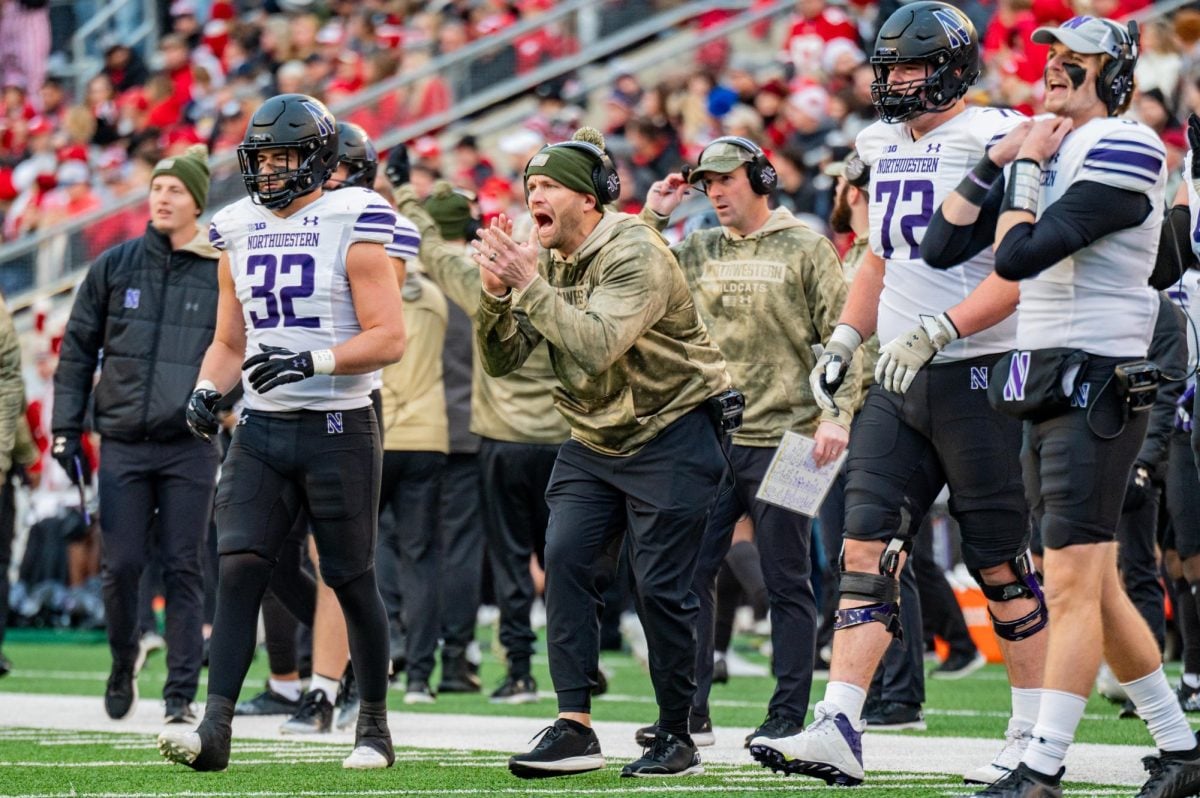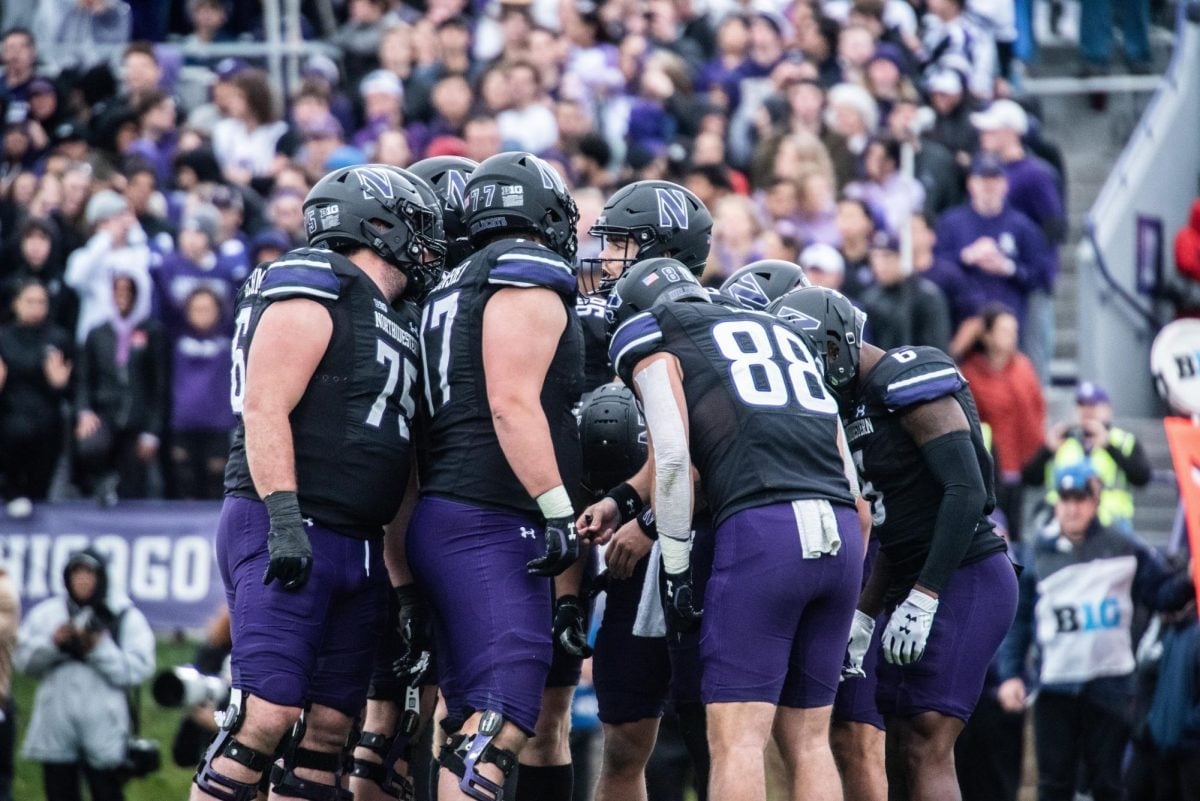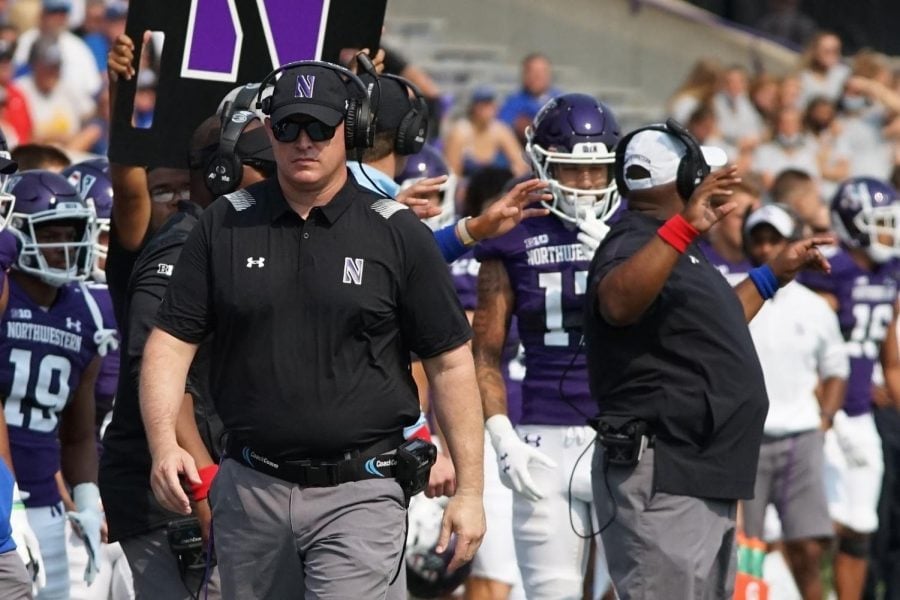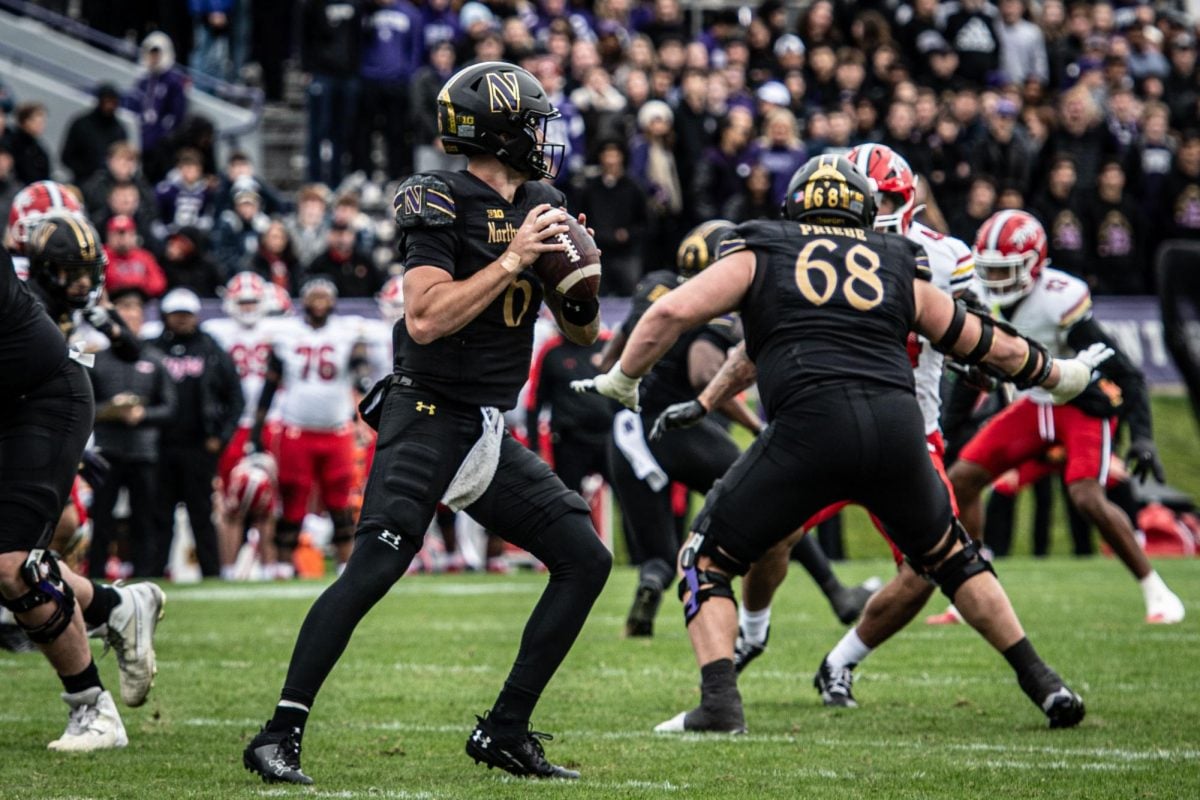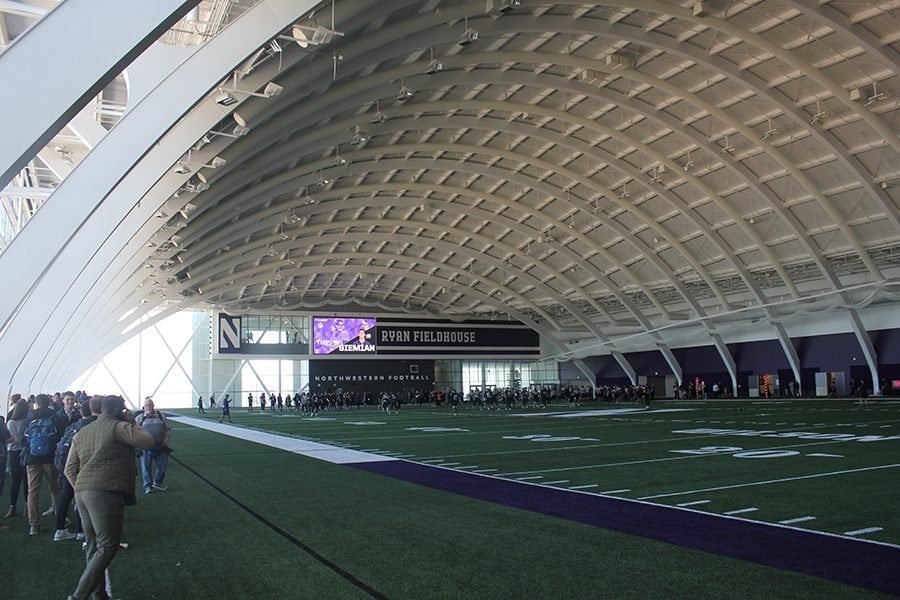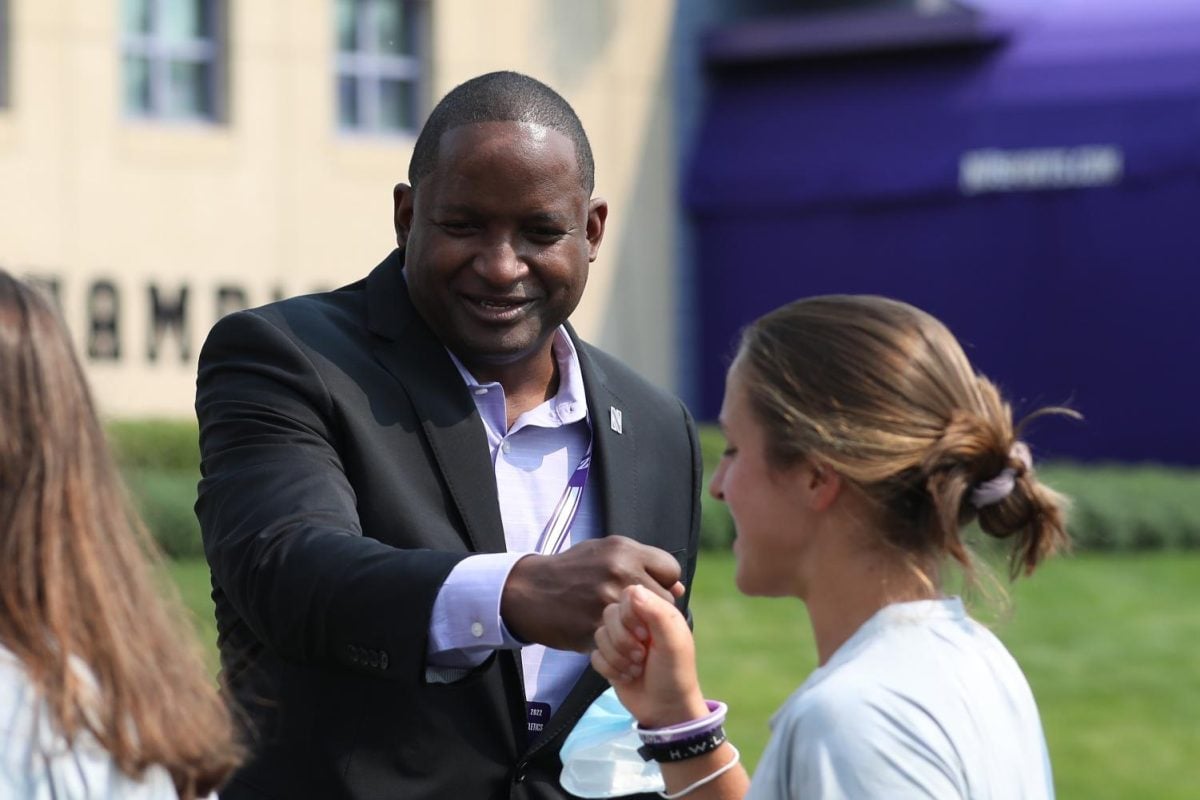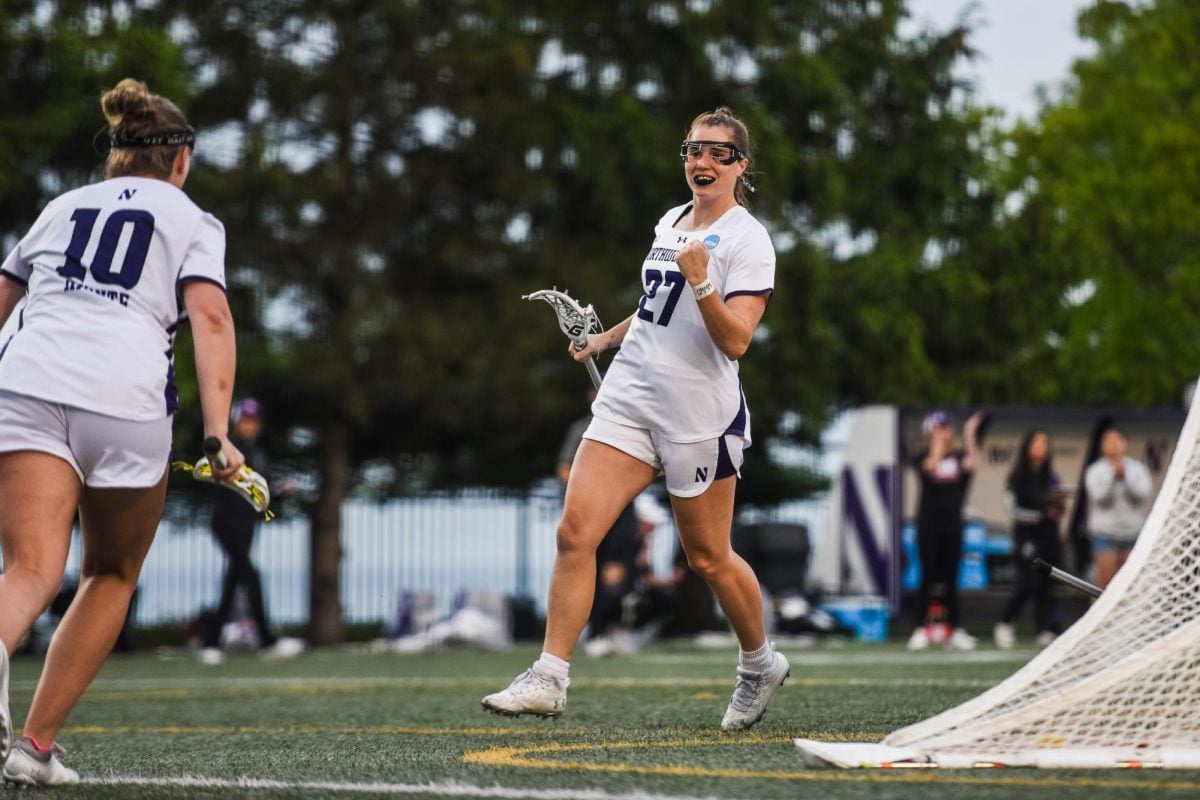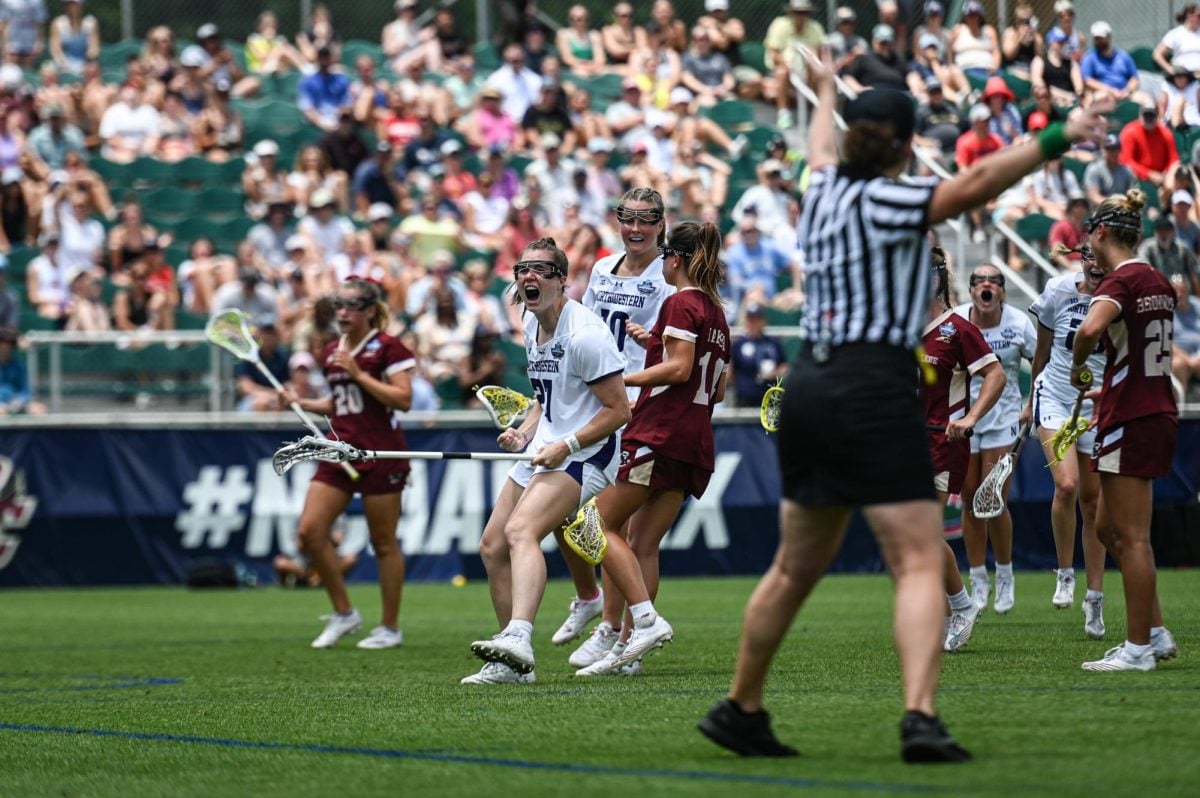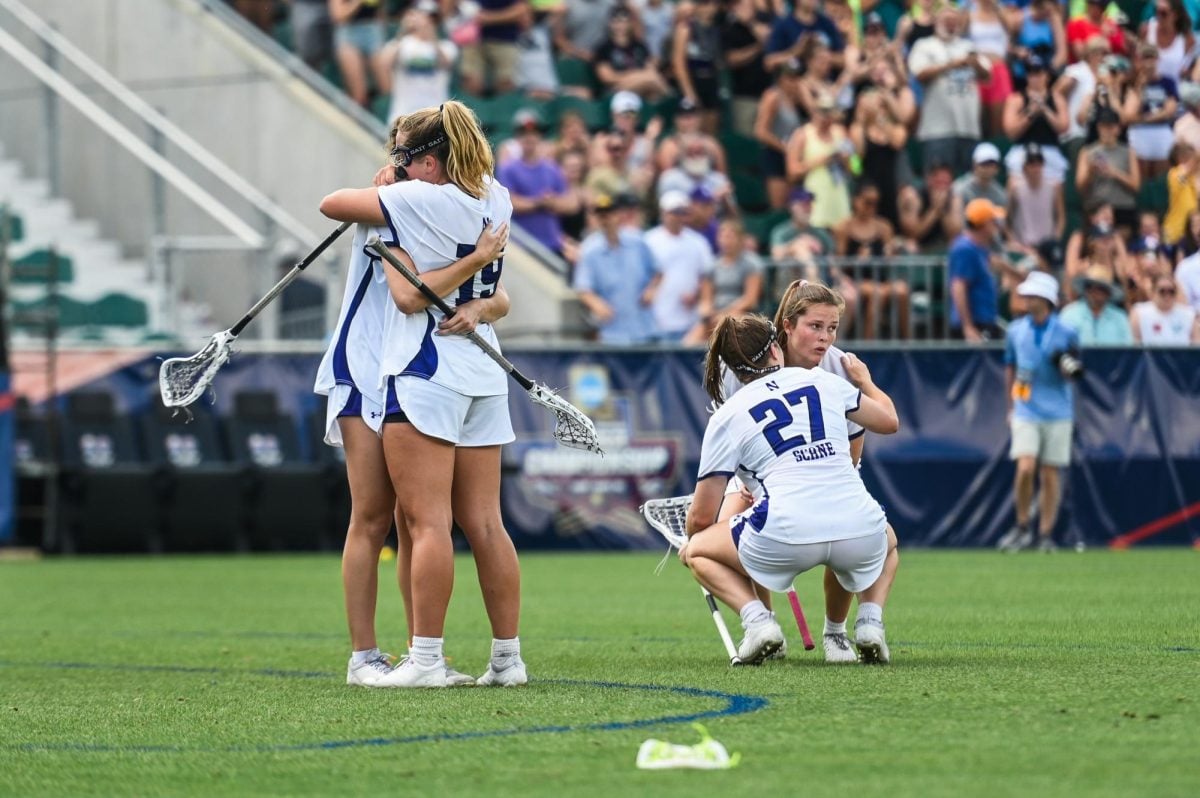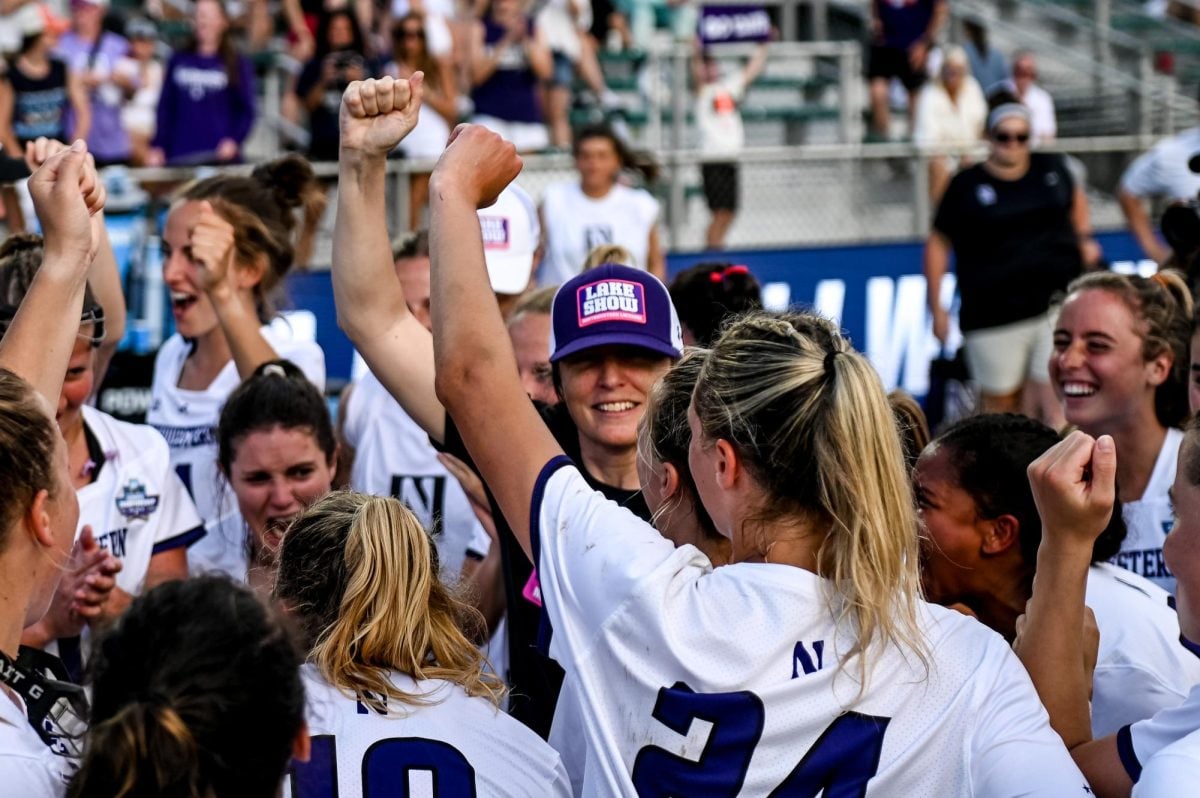A memory lasts forever. Never does it die.
The Big Ten was founded in 1896 and is the oldest Division I conference in the country. It is rich in tradition, rich in loyalty and rich in memories. Look no further than Penn State coach Joe Paterno, who is in his 44th season at that position for the Nittany Lions. He has kept Penn State within his family – all five of his children are Penn State graduates, and his son Jay has been quarterbacks coach for the Nittany Lions since 1999.
Once a member of the Big Ten football fraternity, always a member. While Northwestern coach Pat Fitzgerald is the only current coach to be leading his former team, Wisconsin coach Bret Bielema (Iowa) and Minnesota coach Tim Brewster (Illinois) have returned to the conference after spending their college careers in the conference.
Paterno has spent 10 more years in the conference than Fitzgerald has on earth. From Paterno, the oldest Division I coach in the nation, to Fitzgerald, the second-youngest, players, coaches and fans alike have both fond and bitter recollections of Big Ten football.Let the trip down memory lane begin.
When tragedy struck
NU’s matchup against Miami (OH) on Saturday is significant for several reasons. For one, the Wildcats head into the game with a 3-2 record, and a win against the RedHawks would put them in a more manageable 4-2 position going into the main stretch of Big Ten play.But the game is significant for a more sentimental reason. Miami was the program former NU coach Randy Walker manned before taking over as the Cats’ coach for seven seasons. He departed Miami as the winningest coach in school history, with a record of 59-35-5, including a 10-1 mark in 1998.
During his stint in Evanston, Walker set even more records. He became the first NU coach to lead three different teams to bowl games and to record victories over all of the Big Ten’s teams. Walker had a seven-year coaching mark of 37-46.
The future looked promising for the Cats under the guidance of the coach who instituted the spread offense.
But on June 29, 2006, the NU football community was hit with a crushing blow: Walker died unexpectedly of a heart attack at the age of 52. The program was not without a leader for long. Just more than a week later, on July 7, 2006, Fitzgerald stepped into the playcalling position. At the time, he was the youngest Division I coach in the nation.
“To lose coach (Walker), to lose anyone close to you, is hard to overcome,” said quarterback Mike Kafka, one of a few fifth-year seniors who spent a season playing under Walker. “But coach Fitz stepped in, and we were able to move on. We really learned a lot about ourselves and a lot about Northwestern through those times.”
The first game of Fitzgerald’s coaching career came at Miami in a game that honored Walker. Both teams had decals on their helmets with Walker’s number and nickname. Walker had scheduled the game when he left Miami in 1999, so that NU would be only the second Big Ten team to play in Oxford, Ohio.
“I couldn’t even describe it,” said Fitzgerald of the game, which NU won 21-3. “It was a really humid night that night, and it almost felt like the humidity was symbolic of the emotion that was in the air. You could cut it with a knife.”
Fitzgerald said what he remembers most about Walker as a coach was simple: He told his players what they needed to hear, not what they wanted to hear. Fitzgerald added that he thinks about Walker every day, but his most lasting memory of Walker came away from the football field.
“Stacy and I go vacation down in Naples, Florida, where Tammy and Randy have a place, and we had some fun on a beach one day, ” Fitzgerald said. “One of my dad’s best friends lives down in Naples half the year, and he was a real clean-cut guy. When he retired, he grew a ponytail like Panama Jack. We went out for pizza one night, and Walk said, ‘That’s going to be me in 15 years.’ It’s one of those memories that will always stick with me – watching the sunset and having a few cocktails on a beach, with Walk talking about how he was going to grow a ponytail.”
Pasadena perfection
All three of the Big Ten coaches who played in the conference helped lead their respective teams to the Rose Bowl during their time in pads, yet none have been back as coaches. The three fondly remember their trips to Pasadena. The memories are motivation to get back there.
“Everything you dream about being a Big Ten student athlete who’s a football player is about playing in Pasadena,” said Fitzgerald, who had to miss the 1996 Rose Bowl with a leg injury. “To be a part of bringing the purple to Pasadena is something that drives me and motivates me every single day.”
Bielema recalls making the Rose Bowl as an Iowa Hawkeye during the 1990 season, noting the team’s win at Michigan during the regular season as the game that solidified its ticket to Pasadena.
Most people would commemorate the occasion with a picture or souvenir. Bielema went a different route.
“We got done playing in the Rose Bowl that year, and I was just sitting around in the spring,” Bielema said at Big Ten Media Day in July. “I had four roommates, and all of us popped in a car and drove to a tattoo parlor. We designed (the tattoos) ourselves, all of them were totally different, and we got it done. I never really thought about it. The only thing I was trying to do was hide it from my mom and dad.”
Minnesota coach Tim Brewster was a captain of the Illinois team that made the Rose Bowl during the 1984 season. Brewster shared the same sentiments as Fitzgerald about going to Pasadena: He hopes he can relive the experience when taking the field as the Golden Gophers’ coach.
“My favorite memory as a player was leading our football team into the Rose Bowl as the Big Ten Champion,” said Brewster, who was a two-time All-Big Ten selection at tight end. “That was a memory I’ll cherish forever: leading the Illini into the Rose Bowl in front of 105,000 fans. It was an amazing experience, and it’s one which drives me on a daily basis to do again, to lead the Minnesota Golden Gophers into Pasadena, into the Rose Bowl.”
Iowa coach Kirk Ferentz bitterly recalled getting snubbed by the selection committee for the Rose Bowl in 2002, when his Hawkeyes went to the Orange Bowl and lost 38-17 to USC. However, he had much more vivid recollections of 1981, when Iowa made it to the Rose Bowl, even though the Hawkeyes were shut out 28-0 against Washington.
“When Iowa went to the Rose Bowl, it was a 13-year run of Ohio State and Michigan (playing in the Rose Bowl),” Ferentz said. “That was a real historical time in the conference … but a bigger moment for Iowa, certainly, with the drought (of missing the Rose Bowl). It was a storybook season, and up until the game it was a great thing.”
Loving the journey
Since Ferentz led the Hawkeyes to Pasadena in 1981, eight of the conference’s teams have made the Rose Bowl. This parity has made the Big Ten a conference as competitive from top to bottom as any in the nation.
For coaches, both those who have led their teams to Pasadena and those still awaiting their first Rose Bowl, the process of building a team and preparing to play in the ever-changing conference has been challenging and fun at the same time.
One would think that Illinois coach Ron Zook’s most memorable moment would be coaching in the 2008 Rose Bowl. But it wasn’t the high point he remembers the most – it was the lowest.
“The first year when we played Penn State, we could have gotten beaten 100-0, 200-3,” Zook said. “At that point in time, I remember walking off the field and thinking, ‘What am I going to say to our football team?’
“You have to hit rock bottom before you can start back up, and I really believe since that day, every day we’ve taken a little step, some days bigger steps, toward the kind of program we want to be.”
Indiana coach Bill Lynch started off strong
in the Big Ten, leading the Hoosiers to the Insight Bowl during his first season in 2007. As he looked across the room at Big Ten Media Day toward Paterno and Jim Tressel, he said preparing to take on teams led by legends is what makes coaching in the Big Ten worthwhile.
“What I really enjoy is week by week, going in there and putting one game away and getting ready for the next one, and preparing and putting together a game plan and playing at the end of the week,” Lynch said. “If every week when you turn on that film to get ready for that next team you see a well-coached team that presents different challenges, that’s a lot of fun.”
Coaches and players hope this season and future seasons will breed more iconic moments. And for Fitzgerald, that means satisfying his hunger to bring the purple to Pasadena.
“Every time I go to California, I will not eat at In-and-Out Burger,” Fitzgerald said. “I won’t step foot in, and I won’t go to the Rose Bowl until we go back.
“I’m really jonesin’ for an In-and-Out Burger, so we need to go to the Rose Bowl.”Then, maybe Pasadena will taste better than it did the first time around, leaving a memory that lasts for a lifetime.












